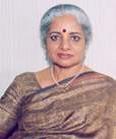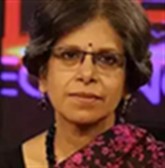The webinar organised by NCAER is part of its Investor Education and Protection Fund (IEPF) Chair Unit’s webinar series. NCAER established the IEPF Chair Unit in 2020, with funding from the Investor Education and Protection Fund Authority, Ministry of Corporate Affairs. NCAER’s IEPF Chair Unit conducts research on contemporary issues related to investor education and protection, and an analysis of related economic and regulatory issues.
Stock market instruments come in various forms. But regardless of the nomenclature and the finer differences between them, all instruments can be classified into two broad categories: Equity and Debt. However, the difference doesn’t end there. In the Indian context, equity markets are well-developed and have a huge retail presence, especially post-Covid-19, when thanks to a combination of factors retail investors turned to equity in a big way. In contrast, our bond markets are notable for the absence of retail investors. Whether it is government bonds (G-Secs) or corporate bonds, the market is dominated by institutional players. While the G-Sec market is dominated by banks, insurance companies and pension funds that are mandated to invest some proportion of their funds in G-Secs, private placements are the norm in the corporate bond market.
Why are retail investors reluctant to invest in either G-Secs (despite their risk-free nature) or corporate bonds? Is it lack of awareness/financial literacy/high (?) incidence of fraud and default/poor recourse? Can we energise the bond market and make it as vibrant as the equity market? The webinar hosted discussions on these issues and the way forward with panel of experts: Usha Thorat, former Deputy Governor, Reserve Bank of India; Ananth Narayan, Associate Professor, SPJIMR, Mumbai and Senior India Analyst, Observatory Group, LLC and Madan Sabnavis, formerly Chief Economist, Care Ratings, presently Chief Economist, Bank of Baroda. The discussion was moderated by Mythili Bhusnurmath, Senior Adviser, NCAER.
Panellists:
 Usha Thorat is a former Deputy Governor of the Reserve Bank of India Her experience covers foreign exchange and reserves management, debt management of Central and State governments, development and regulation of money, forex and government securities markets, rural planning and credit, cooperative banking, customer service and grievance redressal, and payment and settlement systems. She has an MA in Economics from the Delhi School of Economics.
Usha Thorat is a former Deputy Governor of the Reserve Bank of India Her experience covers foreign exchange and reserves management, debt management of Central and State governments, development and regulation of money, forex and government securities markets, rural planning and credit, cooperative banking, customer service and grievance redressal, and payment and settlement systems. She has an MA in Economics from the Delhi School of Economics.
 Ananth Narayan is an Associate Professor at the SP Jain Institute of Management and Research. He is an international banking and financial markets expert. He holds over 24 years of experience in banking and financial markets with Standard Chartered, Deutsche Bank and Citibank. He holds a B.Tech. from IIT Bombay, and a post graduate diploma in Management from IIM Lucknow.
Ananth Narayan is an Associate Professor at the SP Jain Institute of Management and Research. He is an international banking and financial markets expert. He holds over 24 years of experience in banking and financial markets with Standard Chartered, Deutsche Bank and Citibank. He holds a B.Tech. from IIT Bombay, and a post graduate diploma in Management from IIM Lucknow.
 Madan Sabnavis is the Chief Economist at the Bank of Baroda. Prior to this, he was the Chief Economist at Care Ratings Ltd. He has over 30 years of experience across development banking, commercial banking, engineering, commodity exchange and credit ratings. He has an MA in Economics from the Delhi School of Economics.
Madan Sabnavis is the Chief Economist at the Bank of Baroda. Prior to this, he was the Chief Economist at Care Ratings Ltd. He has over 30 years of experience across development banking, commercial banking, engineering, commodity exchange and credit ratings. He has an MA in Economics from the Delhi School of Economics.
 Mythili Bhusnurmath is Senior Adviser, NCAER, and Consulting Editor, ET Now TV. She holds a Master’s in Economics from the Delhi School of Economics and is a Certified Associate of the Indian Institute of Bankers. She also holds a law degree from Delhi University.
Mythili Bhusnurmath is Senior Adviser, NCAER, and Consulting Editor, ET Now TV. She holds a Master’s in Economics from the Delhi School of Economics and is a Certified Associate of the Indian Institute of Bankers. She also holds a law degree from Delhi University.







 Usha Thorat is a former Deputy Governor of the Reserve Bank of India Her experience covers foreign exchange and reserves management, debt management of Central and State governments, development and regulation of money, forex and government securities markets, rural planning and credit, cooperative banking, customer service and grievance redressal, and payment and settlement systems. She has an MA in Economics from the Delhi School of Economics.
Usha Thorat is a former Deputy Governor of the Reserve Bank of India Her experience covers foreign exchange and reserves management, debt management of Central and State governments, development and regulation of money, forex and government securities markets, rural planning and credit, cooperative banking, customer service and grievance redressal, and payment and settlement systems. She has an MA in Economics from the Delhi School of Economics. Ananth Narayan is an Associate Professor at the SP Jain Institute of Management and Research. He is an international banking and financial markets expert. He holds over 24 years of experience in banking and financial markets with Standard Chartered, Deutsche Bank and Citibank. He holds a B.Tech. from IIT Bombay, and a post graduate diploma in Management from IIM Lucknow.
Ananth Narayan is an Associate Professor at the SP Jain Institute of Management and Research. He is an international banking and financial markets expert. He holds over 24 years of experience in banking and financial markets with Standard Chartered, Deutsche Bank and Citibank. He holds a B.Tech. from IIT Bombay, and a post graduate diploma in Management from IIM Lucknow. Madan Sabnavis is the Chief Economist at the Bank of Baroda. Prior to this, he was the Chief Economist at Care Ratings Ltd. He has over 30 years of experience across development banking, commercial banking, engineering, commodity exchange and credit ratings. He has an MA in Economics from the Delhi School of Economics.
Madan Sabnavis is the Chief Economist at the Bank of Baroda. Prior to this, he was the Chief Economist at Care Ratings Ltd. He has over 30 years of experience across development banking, commercial banking, engineering, commodity exchange and credit ratings. He has an MA in Economics from the Delhi School of Economics. Mythili Bhusnurmath is Senior Adviser, NCAER, and Consulting Editor, ET Now TV. She holds a Master’s in Economics from the Delhi School of Economics and is a Certified Associate of the Indian Institute of Bankers. She also holds a law degree from Delhi University.
Mythili Bhusnurmath is Senior Adviser, NCAER, and Consulting Editor, ET Now TV. She holds a Master’s in Economics from the Delhi School of Economics and is a Certified Associate of the Indian Institute of Bankers. She also holds a law degree from Delhi University.


